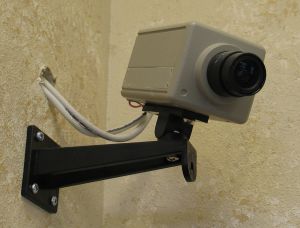 The Baltimore City Police Department is currently working out the details of a plan to begin video recording police interrogations for violent crimes. While the Baltimore City Police Department is the eigth largest in the county it is certainly not the most technologically advanced. Hundreds of police departments across the country currently record police interrogations for almost any crime including the Baltimore County Police Department. Some jurisdictions, including Washington D.C., go as far as requiring video recording for all police interrogations. In 2008, the Maryland General Assembly endorsed the use of video recorded interrogations, but did not decide to require them. As a result of the endorsement, the number of police agencies using video recording in Maryland has nearly doubled.
The Baltimore City Police Department is currently working out the details of a plan to begin video recording police interrogations for violent crimes. While the Baltimore City Police Department is the eigth largest in the county it is certainly not the most technologically advanced. Hundreds of police departments across the country currently record police interrogations for almost any crime including the Baltimore County Police Department. Some jurisdictions, including Washington D.C., go as far as requiring video recording for all police interrogations. In 2008, the Maryland General Assembly endorsed the use of video recorded interrogations, but did not decide to require them. As a result of the endorsement, the number of police agencies using video recording in Maryland has nearly doubled.
Baltimore Police began to incorporate video recording several years ago in an effort to update investigation capabilities in its sex crimes division. The Baltimore City Police Department will now undergo another video recording update, but initially only for serious crimes such as murder and gun crimes involving a shooting. City police commissioner Frederick Bealefeld III is on record as being committed to institute video recording for violent crimes in a cost effective and informed manner. Baltimore Police must first purchase and install video recording equipment and then train detectives in the art of interrogating a suspect on camera.
Continue reading →
 Criminal Defense Lawyer Blog
Criminal Defense Lawyer Blog


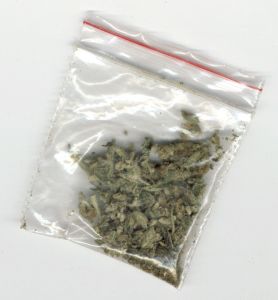 A Baltimore area marijuana dealer has been sentenced to over 20 years in prison after the jury found him guilty at trial. Defense lawyers were unable to overcome the strong evidence that federal prosecutors presented during two weeks of testimony in United States district court in Maryland. The convicted Baltimore drug dealer was arrested in 2010 and charged with distribution of marijuana and conspiracy to commit money laundering. Both the internal revenue service and the federal drug enforcement agency participated in the investigation, which ultimately let to a multi count indictment.
A Baltimore area marijuana dealer has been sentenced to over 20 years in prison after the jury found him guilty at trial. Defense lawyers were unable to overcome the strong evidence that federal prosecutors presented during two weeks of testimony in United States district court in Maryland. The convicted Baltimore drug dealer was arrested in 2010 and charged with distribution of marijuana and conspiracy to commit money laundering. Both the internal revenue service and the federal drug enforcement agency participated in the investigation, which ultimately let to a multi count indictment. Recently three school buses were involved in a car accident in Prince Georges County, Maryland where upwards of 25 students were injured. And just last week, a central Florida community was rocked by the news that 9 year old student was killed in a school bus accident, along with 15 other students being injured in the crash. These tragic accidents appear to be showing up in the news more frequently, which begs parents and lawmakers to question whether Maryland school buses are actually safe and what the legislature could do to make them safer.
Recently three school buses were involved in a car accident in Prince Georges County, Maryland where upwards of 25 students were injured. And just last week, a central Florida community was rocked by the news that 9 year old student was killed in a school bus accident, along with 15 other students being injured in the crash. These tragic accidents appear to be showing up in the news more frequently, which begs parents and lawmakers to question whether Maryland school buses are actually safe and what the legislature could do to make them safer.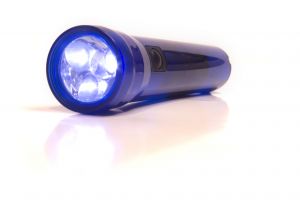 Maryland jails will continue to have the power to strip-search a person who is arrested for any crime, regardless of whether cops are suspicious that contraband may be present. The Supreme Court ruled 5-4 in favor of upholding jail house strip-searches in an April 2 decision. The ruling will allow Baltimore police to strip-search any person arrested before he or she is admitted into the jail for any type of crime. Defendants arrested for minor crimes such as driving without a license, failing to pay child support, or even violating a dog leash law are also subject to strip-search upon being booked into the jail.
Maryland jails will continue to have the power to strip-search a person who is arrested for any crime, regardless of whether cops are suspicious that contraband may be present. The Supreme Court ruled 5-4 in favor of upholding jail house strip-searches in an April 2 decision. The ruling will allow Baltimore police to strip-search any person arrested before he or she is admitted into the jail for any type of crime. Defendants arrested for minor crimes such as driving without a license, failing to pay child support, or even violating a dog leash law are also subject to strip-search upon being booked into the jail. The last of five suspects involved a string of Baltimore area armed robberies was recently sentenced to prison. Maryland federal district judge Benson E. Legg handed down the 10 and a half year sentence, which also included a 3 year term of probation when the prison term expires. Judge Legg is the same federal district judge who just last month declared a controversial Maryland gun law unconstitutional (
The last of five suspects involved a string of Baltimore area armed robberies was recently sentenced to prison. Maryland federal district judge Benson E. Legg handed down the 10 and a half year sentence, which also included a 3 year term of probation when the prison term expires. Judge Legg is the same federal district judge who just last month declared a controversial Maryland gun law unconstitutional ( Crime victims in Baltimore County are now able to file police reports online, instead of reporting the crime to an officer in person. Baltimore County police say the online system will have various benefits for victims of minor crimes and for the police department. Crime victims will be able to quickly generate reports for incidents such as theft and destruction of property, which insurance companies typically require before a claim can be filed. The Baltimore County police will also be able to conserve resources by not dispatching officers to minor crime scenes. Other reports that may now be filed online in Baltimore County include hit and run car accidents, lost property, and abandoned motor vehicles.
Crime victims in Baltimore County are now able to file police reports online, instead of reporting the crime to an officer in person. Baltimore County police say the online system will have various benefits for victims of minor crimes and for the police department. Crime victims will be able to quickly generate reports for incidents such as theft and destruction of property, which insurance companies typically require before a claim can be filed. The Baltimore County police will also be able to conserve resources by not dispatching officers to minor crime scenes. Other reports that may now be filed online in Baltimore County include hit and run car accidents, lost property, and abandoned motor vehicles. Recently a controversial Maryland gun law was declared unconstitutional in federal court. The decision left gun supporters and opponents alike arguing over the possible impacts on violent crime such as robbery, burglary, and even murder. The law required all Maryland residents to prove a “good and substantial reason” to be able to legally carry a handgun outside of the home in order to be granted a gun permit. The lawsuit began when a Baltimore man sued the state of Maryland in federal civil court after his application to renew his handgun carry permit was denied. The Baltimore man was joined in the lawsuit as plaintiff by the Second Amendment Foundation, a non-profit organization dedicated to the preservation of the right to bear arms. The plaintiffs prevailed, and provided the case is not successfully appealed, the Maryland legislature must modify this gun law.
Recently a controversial Maryland gun law was declared unconstitutional in federal court. The decision left gun supporters and opponents alike arguing over the possible impacts on violent crime such as robbery, burglary, and even murder. The law required all Maryland residents to prove a “good and substantial reason” to be able to legally carry a handgun outside of the home in order to be granted a gun permit. The lawsuit began when a Baltimore man sued the state of Maryland in federal civil court after his application to renew his handgun carry permit was denied. The Baltimore man was joined in the lawsuit as plaintiff by the Second Amendment Foundation, a non-profit organization dedicated to the preservation of the right to bear arms. The plaintiffs prevailed, and provided the case is not successfully appealed, the Maryland legislature must modify this gun law. 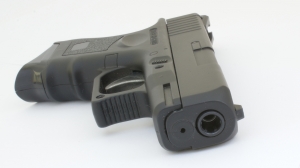 A federal judge has found a controversial Maryland gun law unconstitutional pursuant to a recent ruling. The key issue of the handgun law is the section that requires Maryland residents to show a “good and substantial reason” to carry a gun outside of their home in order to receive a permit from the state. A civil lawsuit challenging the firearm law was filed in the United States District Court for the District of Maryland, and judge Benson Everett Legg presided over the case. The plaintiffs consisted of multiple parties including the Second Amendment Foundation, a non-profit organization which promotes gun possession and ownership rights, and a Baltimore County resident.
A federal judge has found a controversial Maryland gun law unconstitutional pursuant to a recent ruling. The key issue of the handgun law is the section that requires Maryland residents to show a “good and substantial reason” to carry a gun outside of their home in order to receive a permit from the state. A civil lawsuit challenging the firearm law was filed in the United States District Court for the District of Maryland, and judge Benson Everett Legg presided over the case. The plaintiffs consisted of multiple parties including the Second Amendment Foundation, a non-profit organization which promotes gun possession and ownership rights, and a Baltimore County resident.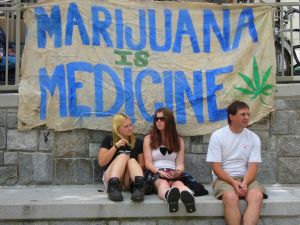 Each year thousands of defendants are arrested in Maryland for possession of marijuana and other drugs such as cocaine and and prescription pills. The costs of enforcing Maryland marijuana laws and other drug laws were revealed in part one of this post. In part two we will discuss the possible positive effects of decriminalizing marijuana in Maryland.
Each year thousands of defendants are arrested in Maryland for possession of marijuana and other drugs such as cocaine and and prescription pills. The costs of enforcing Maryland marijuana laws and other drug laws were revealed in part one of this post. In part two we will discuss the possible positive effects of decriminalizing marijuana in Maryland.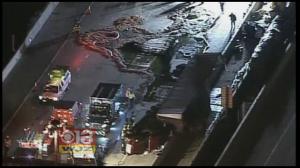 Maryland Police have charged a truck driver with DUI after the driver crashed his tractor trailer on interstate 95 in Baltimore. The apparent drunk driving accident occurred on February 15, on an overpass above interstate 895. Investigators do not know the exact cause of the crash, but the driver likely lost control causing the truck to turn over in the left lane of 95, just north of the Baltimore harbor tunnel. The allegedly intoxicated truck driver was carrying thousands of gallons of a water based chemical additive used in making concrete. Maryland police have yet to release the blood alcohol content of the accused driver, nor did the police divulge whether the driver submitted to a breath or blood alcohol test.
Maryland Police have charged a truck driver with DUI after the driver crashed his tractor trailer on interstate 95 in Baltimore. The apparent drunk driving accident occurred on February 15, on an overpass above interstate 895. Investigators do not know the exact cause of the crash, but the driver likely lost control causing the truck to turn over in the left lane of 95, just north of the Baltimore harbor tunnel. The allegedly intoxicated truck driver was carrying thousands of gallons of a water based chemical additive used in making concrete. Maryland police have yet to release the blood alcohol content of the accused driver, nor did the police divulge whether the driver submitted to a breath or blood alcohol test.